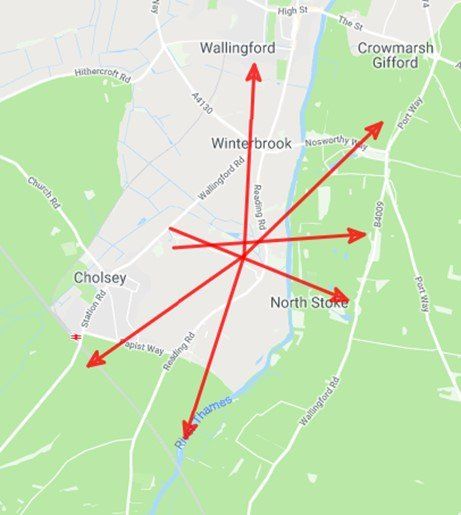Time to Save The Honeybee
Bee.watch
So recently we posted on many local groups from pest control, beekeepers and general local Facebook spotted pages about a new app that is helping to save bees. This is mainly aimed at honey bees currently but there are other things in the pipeline. So what did we recently share?
Now we are in bee swarm season, If you have a bee swarm or even see a settled bee swarm then there are a couple ways to go about it. The first is to contact us at shire pest solutions (numbers or contact us forms on the website at Shire Pest Solutions , the second is to report the swarm via Bee.watch and if possible provide a picture. Another way and being a very long-winded and time-consuming way around it would be to phone every individual beekeeper you can find listed and hoping they can get out and collect it safely before it causes a nuisance. With the first two options we, or you can alert all beekeepers signed up to the app (numbers growing daily) in the area immediately. All bees we collect are relocated to our local apiary the same day, as you can see in the following video just click this link ( Swarm)
So what is bee.watch?
Bee.watch is an app aimed at beekeepers and anyone that uses pesticides/insecticides or other products that are harmful to bees.
It works in two ways depending on if you are a beekeeper or a user of potentially harmful chemicals.
the first is that any user of insecticide or pesticides can report, via the app any treatment undertaken. This is marked on a map and alerts all beekeepers in a specific distance to a treatment in the area, this then gives the beekeeper the opportunity to decide if they should close their hive temporarily and protect their apiary/hive from potentially harmful chemicals that may result in colony loss.
The second is for beekeepers, this side of the app gives alerts based on a couple of choices. The first is what I have mentioned above and all beekeepers are alerted to any potentially harmful treatments in the area, be it from pest controllers, farmers, gardeners even golf clubs and the general public, anyone who cares enough to help the bees and use the app.
The other is to report a swarm, this then goes out to all swarm collectors signed up to the app (in a 10-mile radius I believe) so that the swarm can be collected by a local beekeeper for rehoming at a local apiary.
As an added bonus there is a hornet/Asian hornet tracker. This may prove vital if the Asian hornet starts becoming a regular visitor to our island. This works by opening the app, clicking hornet tracker which then brings up a compass and a GPS button, you hit the GPS button point the compass in the direction you saw the (Asian)hornet go so the more sightings in this situations the better. it saves the data on a map and can give a better indication of areas to search via cross-sections of known sightings. see picture below
So what are the benefits?
I can only give my personal opinion on this from a pest control point of view and as someone who wants to help bees.
I believe this is beneficial for multiple reasons, the first is that all bees are in decline so the more we can save the better (we also save other bees eg bumblebees, where possible and relocate them to our own gardens for people who truly want them gone).
Secondly, it gives beekeepers the chance to expand their apiary, or even new beekeepers the chance to collect a wild swarm through natural harvest to start out or expand.
Thirdly it shows that users of pesticides/insecticides etc are using them correctly and are showing the willingness to work with others to help protect both bees and the environment. How many treatments do people carry out each year that could potentially harm bees?
Don’t get me wrong, no one does it on purpose. But imagine if all the different industries can work together to better the future? To help save the bees and even other pollinators. How do you think it would turn out?
As pest control we only treat for public health, farmers for crop protection, gardeners and golf clubs to protect greens, gardens, prized bushes from insect damage. What about the local bees in the area? Anything treated could have harmful knock-on effects, much like secondary poisoning from rodenticides in birds of prey.
Let’s all work together to give the future generation, a better understanding of nature. Check out the app and any questions just send us a message and we can either answer them or pass them on to bee.watch HQ
If you have the pest we have the solution.
If you have a bee swarm then Bee.watchhas the solution.
Thanks for reading and Until next time our loyal readers
Mike
All Rights Reserved Shire Pest Solutions


